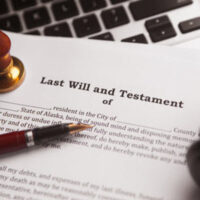Author Archives: Jay Butchko

New York Powers of Attorney and Statutory Gift Riders
A power of attorney is a legal document giving someone the authority to act as your “agent” for purposes of spending your money or otherwise disposing of your property. Your agent may only exercise the authority you grant in the power of attorney. This means that you can give the agent broad or limited… Read More »

How can I sign my Estate Planning documents?
New York is currently at the center of the Covid-19 pandemic. This has forced state agencies, including courts and law offices, to make certain adjustments to their normal procedures. As you probably know, Governor Andrew Cuomo has issued a series of executive orders closing certain businesses and modifying how others need to function during… Read More »

A Special Message to our Clients and Colleagues
With the evolving situation surrounding Coronavirus (COVID-19), Meyer & Spencer, PC is fully committed to the safety and health of our clients, our employees and our community, while ensuring minimal disruption to our work and client service. We hope everyone is safe during this unprecedented time. Our thoughts and prayers are with all those… Read More »

When Does an Estate Have to Pay the Deceased Person’s Debts?
A subject that often comes up in the probate of New York estates is the payment of debts. After all, your death does not automatically extinguish any creditor claims against you. Instead, your creditors may file a claim with the executor or administrator of your estate demanding payment. But there are certain time limits… Read More »

What Are My Options Now that “Stretch” IRAs Are No Longer Allowed?
You have probably read in the news about the “end of the stretch IRA.” You may not know what this refers to, or how it may affect your own retirement and estate planning. Here is a brief overview of what is going on. There is actually no such thing as a “stretch IRA.” It… Read More »

Top Five Reasons to Sign a New York Health Care Proxy
For all you New Yorkers who still do not have a Health Care Proxy, here are the Top Five Reasons you should sign a New York Health Care Proxy: 1. Choose your own agent. By signing a health care proxy, you maintain control over who can make medical decisions in case you can’t make… Read More »

Can My Spouse Still Inherit from My Estate If We Were Getting a Divorce When I Died?
In New York, the surviving spouses of a deceased person have the right to take an “elective share” of their estate. The elective share rule effectively prohibits someone from completely disinheriting the spouse via a will or trust. The scope of the elective share depends on whether the deceased spouse had an estate plan… Read More »

Does My Will Need a Simultaneous Death Clause?
Here is a question we often get asked by married couples: If we both die at the same time, say in a common car accident, what happens to our respective estates? Does it matter which spouse technically died first, even if the deaths occurred just a couple of minutes–or even a couple of days–apart?… Read More »

The Legal Responsibilities of an Agent Under a Durable Power of Attorney
A power of attorney is an estate planning document that authorizes someone else (known as an agent) to act on your behalf. For example, a power of attorney may authorize your agent to sell your house or open a bank account in your name. In New York, it is common practice to have a… Read More »

Do I Need to Worry About the Estate Tax?
Unless you own a substantial amount of assets–we are talking in the seven or eight figures–it is unlikely you will ever need to seriously worry about estate or inheritance taxes. It is still a good idea to understand what these taxes are and how they may affect you as a New York resident. Additionally,… Read More »
